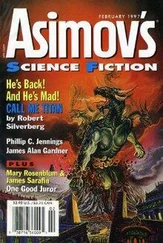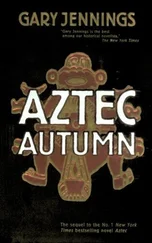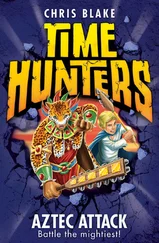Gary Jennings - Aztec
Здесь есть возможность читать онлайн «Gary Jennings - Aztec» весь текст электронной книги совершенно бесплатно (целиком полную версию без сокращений). В некоторых случаях можно слушать аудио, скачать через торрент в формате fb2 и присутствует краткое содержание. Жанр: Старинная литература, на английском языке. Описание произведения, (предисловие) а так же отзывы посетителей доступны на портале библиотеки ЛибКат.
- Название:Aztec
- Автор:
- Жанр:
- Год:неизвестен
- ISBN:нет данных
- Рейтинг книги:4 / 5. Голосов: 1
-
Избранное:Добавить в избранное
- Отзывы:
-
Ваша оценка:
- 80
- 1
- 2
- 3
- 4
- 5
Aztec: краткое содержание, описание и аннотация
Предлагаем к чтению аннотацию, описание, краткое содержание или предисловие (зависит от того, что написал сам автор книги «Aztec»). Если вы не нашли необходимую информацию о книге — напишите в комментариях, мы постараемся отыскать её.
"Anyone who reads, anyone who still lusts for adventure or that book you can't put down, will glory in Aztec."--Los Angeles Times
Aztec
Aztec
Aztec — читать онлайн бесплатно полную книгу (весь текст) целиком
Ниже представлен текст книги, разбитый по страницам. Система сохранения места последней прочитанной страницы, позволяет с удобством читать онлайн бесплатно книгу «Aztec», без необходимости каждый раз заново искать на чём Вы остановились. Поставьте закладку, и сможете в любой момент перейти на страницу, на которой закончили чтение.
Интервал:
Закладка:
I snarled a filthy word, not generally applied to Revered Speakers. "What is our breaking of the truce, compared to his instigating the butchery of a thousand women and children of his own people?"
"Let us charitably assume that he expected Alvarado only to forbid the celebration, that he did not anticipate such a violent dispersal of the celebrants."
"Violent dispersal," I growled. "That is a new way to say indiscriminate slaughter. My wife, a mere onlooker, was wounded. One of her two female servants was killed, and the other has fled terrified into hiding somewhere."
"If nothing else," Cuautemoc said with a sigh, "the incident has united all our people in outrage. Before, they only muttered and grumbled, some of them mistrusting Motecuzóma, others supporting him. Now all are ready to tear him limb from limb, along with everyone else in that palace."
"Good," I said. "Then let us do so. We still have most of our warriors. Raise the city folk as well—even old men like me—and storm the palace."
"That would be suicidal. The outlanders have now barricaded themselves inside it, behind their cannons, behind the harquebuses and crossbows aimed from every window. We could not get near the building without being obliterated. We must engage them hand to hand, as originally planned, and we must wait to have that opportunity again."
"Wait!" I said, with another profanity.
"But while we wait, Cuitlahuac is packing the island with still more warriors. You may have noticed an increase in the traffic of canoes and freight barges plying between here and the mainland, apparently carrying flowers and vegetables and such. Concealed under that top cargo are men and arms—Cacama's Acolhua troops from Texcóco, Tecpanéca troops from Tlácopan. Meanwhile, as we get stronger, our opponents may get weaker. During the massacre, all their servants and attendants deserted the palace. Now, of course, not a single Mexícatl vendor or porter will deliver to them food or anything else. We will let the white men and their friends—Motecuzóma, Malintzin, all of them—sit in their fortification and suffer for a while."
I asked, "Cuitlahuac hopes to starve them into surrender?"
"No. They will be uncomfortable, but the kitchens and larders are adequately supplied to sustain them until Cortés gets back here. When he does, he must not find us overtly belligerent, holding the palace under siege, for he would need only to mount a similar siege around the whole island, and starve us as we starve them."
"Why let him get here at all?" I demanded. "We know he is marching hither. Let us go out and attack him in the open."
"Have you forgotten how easily he won the battle of Texcala? And he now has many more men and horses and weapons. No, we will not confront him in the field. Cuitlahuac plans to let Cortés come here unopposed, and find all his people in the palace unharmed, the truce apparently restored. He will not know of our imported and hidden and waiting warriors. But when we have him and all the white men within our confines, then we will attack—even suicidally, if necessary—and we will wipe this island and this whole lake district clean of them."
* * *
Perhaps the gods decided that it was time Tenochtítlan had a change for the better in its communal tonáli, because that latest plan did work—with only a few unforeseeable complications.
When we got word that Cortés and his multitudinous force were approaching, everyone in the city, by command of the regent Cuitlahuac, determinedly assumed an outward semblance of untroubled normality, even the widowers and orphans and other kinfolk of the slain innocents. All three causeways were again bridged intact, and travelers and porters trudged and trotted back and forth across them. The canoes and barges that plied the canals of the city and the lake around the island were genuinely carrying innocuous cargoes. The thousands of Acolhua and Tecpanéca fighting men whom they had earlier ferried unnoticed, right from under the noses of Cortés's mainland allies, had been kept out of sight ever since. Eight of them, in fact, were living in my house, bored and impatient for action. Tenochtítlan's streets were as thronged as usual, and the Tlaltelólco market was as busy, colorful, and clamorous. The only nearly empty part of the city was The Heart of the One World, its marble pavement still bloodstained, its vast expanse traversed only by the priests of the temples there, who still performed their everyday functions of praying, chanting, burning incense, blowing the time-telling conch trumpets at dawn and midday and so on.
Cortés came warily, apprehensive of animosity, for he had of course heard about the night of massacre, and he would not expose even his formidable army to any risk of ambush. After skirting Texcóco at a prudent distance, he came around the southern lakeshore as before, but he did not take the southern causeway into Tenochtítlan; his men would have been vulnerable to an attack by canoe-borne warriors if they were strung out along the open span of that longest causeway. He continued on around the lake, and up its western shore, dropping off Prince Black Flower and his warriors, posting the big cannons at intervals, all of them pointed across the water at the city, with men to tend them. He marched all the way to Tlácopan, because the causeway from there is the shortest of the three approaches. First he and his hundred or so other horsemen galloped across it as if expecting it to be snatched from under them. Then his foot soldiers did the same, dashing across in companies of about a hundred men at a time.
Once he was on the island, Cortés must have breathed more easily. There had been no ambush or other obstacle to his return. While the people on the city streets did not greet him with tumultuous welcome, neither did they revile him; they merely nodded as if he had never been away. And he must have felt comfortably powerful at being accompanied by one and a half thousand of his own countrymen, not to mention that backing of his thousands of allied warriors camped in an arc around the mainland. He may even have deluded himself that we Mexíca were at last resigned to recognizing his supremacy. So, from the causeway, he and his troops marched through the city like already acknowledged conquerors.
Cortés showed no surprise at finding the central plaza so empty; perhaps he thought it had been cleared for his convenience. Anyway, the bulk of his force stopped there and, with much noise and bustle and wafting about of their bad odors, began to tether their horses, spread out their bedrolls, lay camp-fires, and otherwise settle down as if for an indeterminate stay. All the resident Texcalteca, except for their chief knights, vacated the Axayácatl palace and also made camp in the plaza. Motecuzóma and a group of his loyal courtiers likewise made their first emergence from the palace since the night of Iztociuatl—coming out to greet Cortés—but he disdainfully gave them no recognition at all. He and his newly recruited comrade in arms, Narváez, brushed past them and into the palace.
I imagine the first thing they did was to shout for food and drink, and I would like to have seen Cortés's face when he was served not by servants, but by Alvarado's soldiers, and served only moldy old beans, atóli mush, whatever other provisions remained. I would also like to have overheard Cortés's first conversation with Alvarado, when that sunlike officer told how he had so heroically put down the "uprising" of unarmed women and children, but had neglected to eliminate more than a handful of the Mexíca warriors who could still be a menace.
Cortés and his augmented army had come onto the island in the afternoon. Evidently he and Narváez and Alvarado remained huddled in conference until nightfall, but what they discussed or what plans they made, no one ever knew. I know only that, at some point, Cortés sent a company of his soldiers across the plaza to Motecuzóma's own palace, where, with spears and pry-bars and battering beams, they broke down the walls with which Motecuzóma had tried to seal up the treasure chambers. Then, like ants toiling between a honey pot and their nest, the soldiers went back and forth, transferring the treasury's store of gold and jewels to the dining hall of Cortés's palace. That took the men most of the night, because there was a great deal of the plunder, and it was not in easily portable form, for reasons I should perhaps explain.
Читать дальшеИнтервал:
Закладка:
Похожие книги на «Aztec»
Представляем Вашему вниманию похожие книги на «Aztec» списком для выбора. Мы отобрали схожую по названию и смыслу литературу в надежде предоставить читателям больше вариантов отыскать новые, интересные, ещё непрочитанные произведения.
Обсуждение, отзывы о книге «Aztec» и просто собственные мнения читателей. Оставьте ваши комментарии, напишите, что Вы думаете о произведении, его смысле или главных героях. Укажите что конкретно понравилось, а что нет, и почему Вы так считаете.











